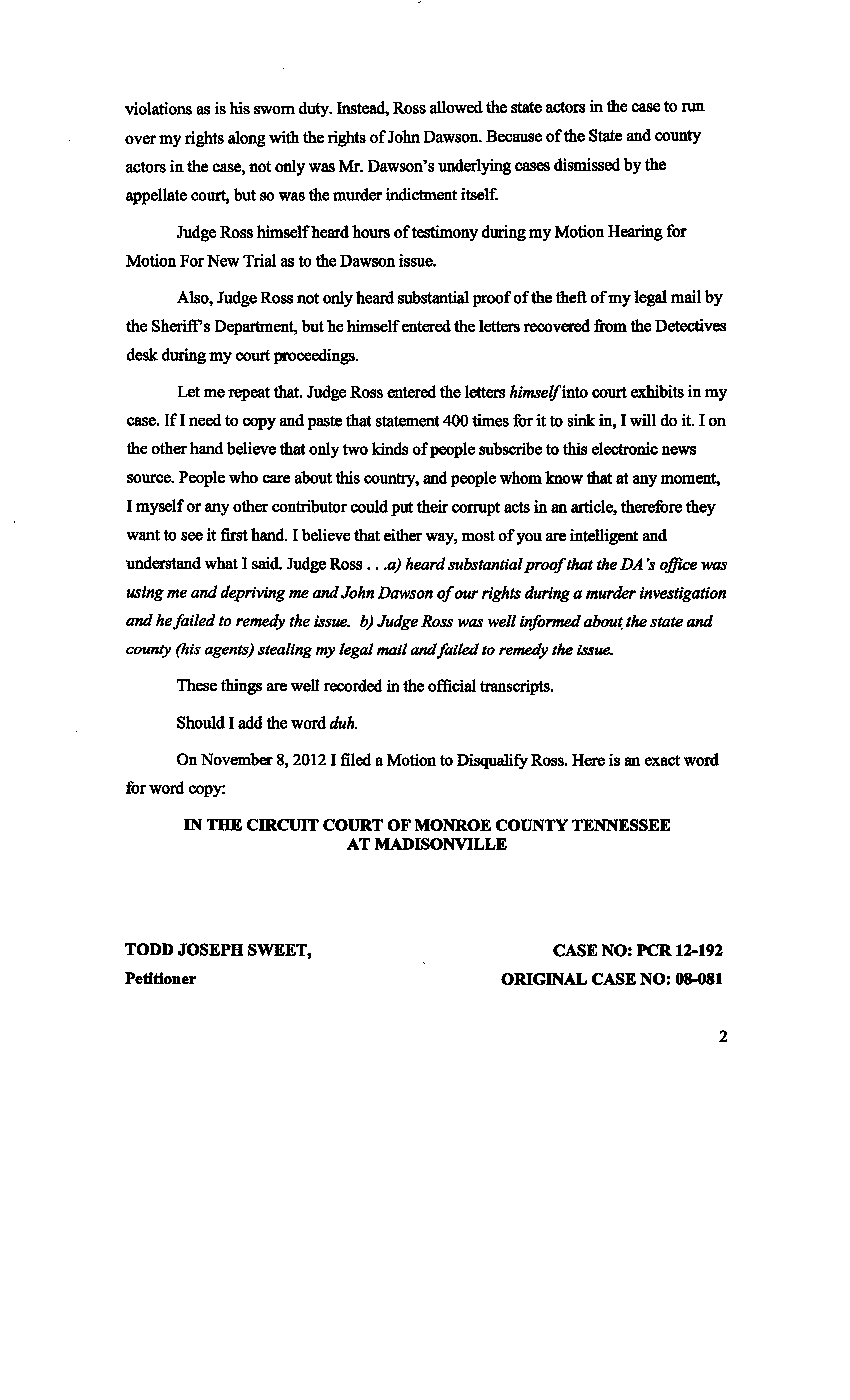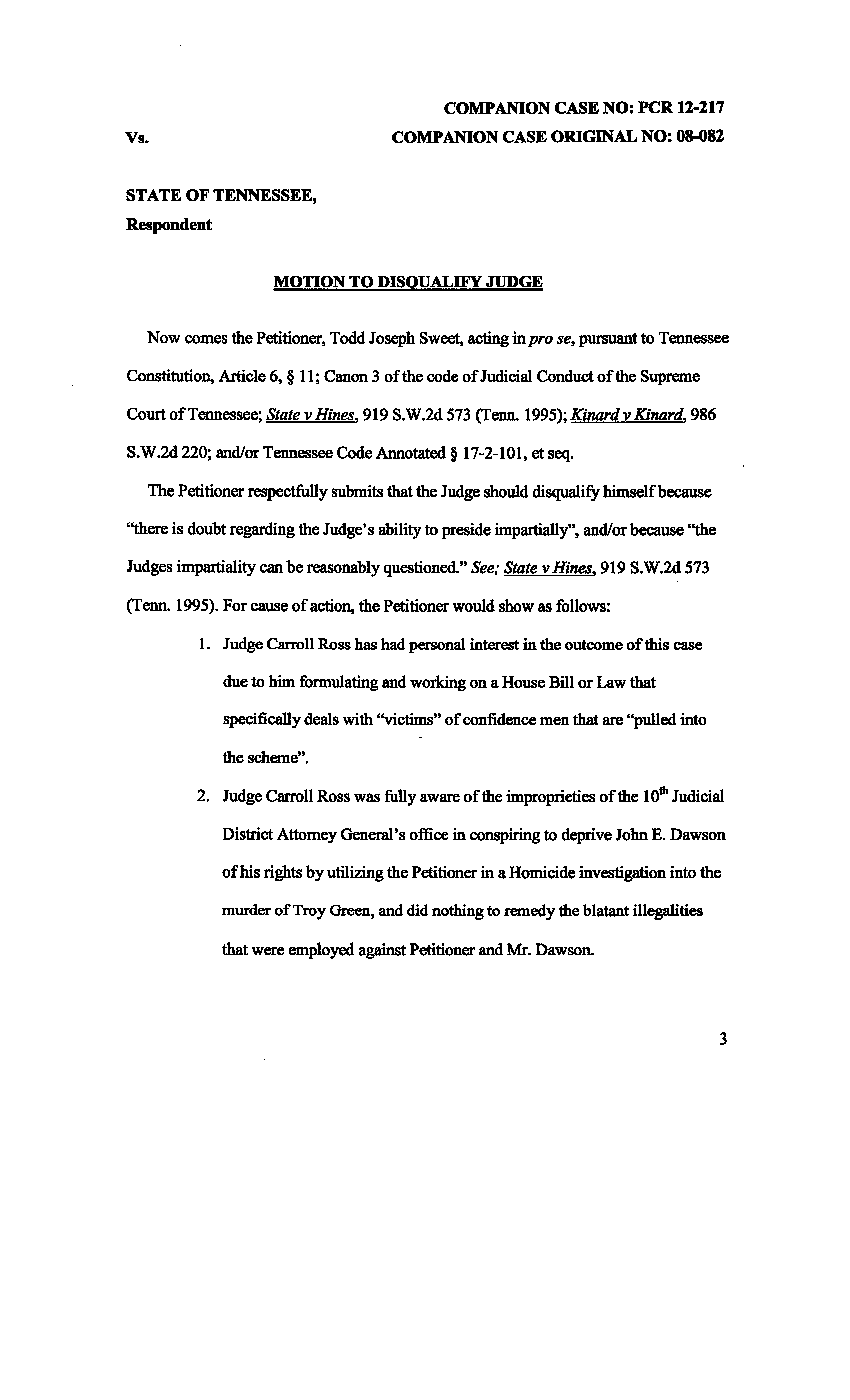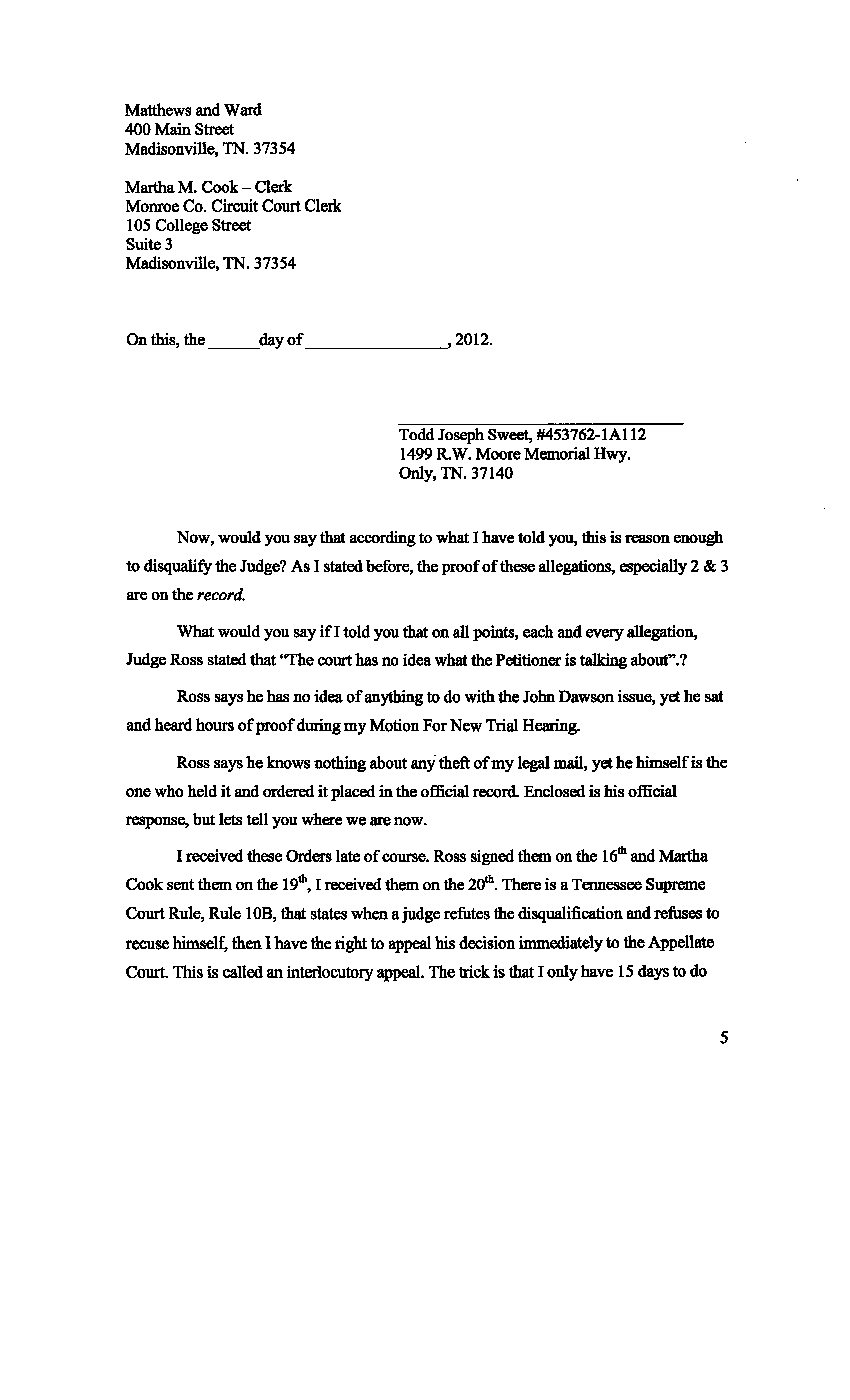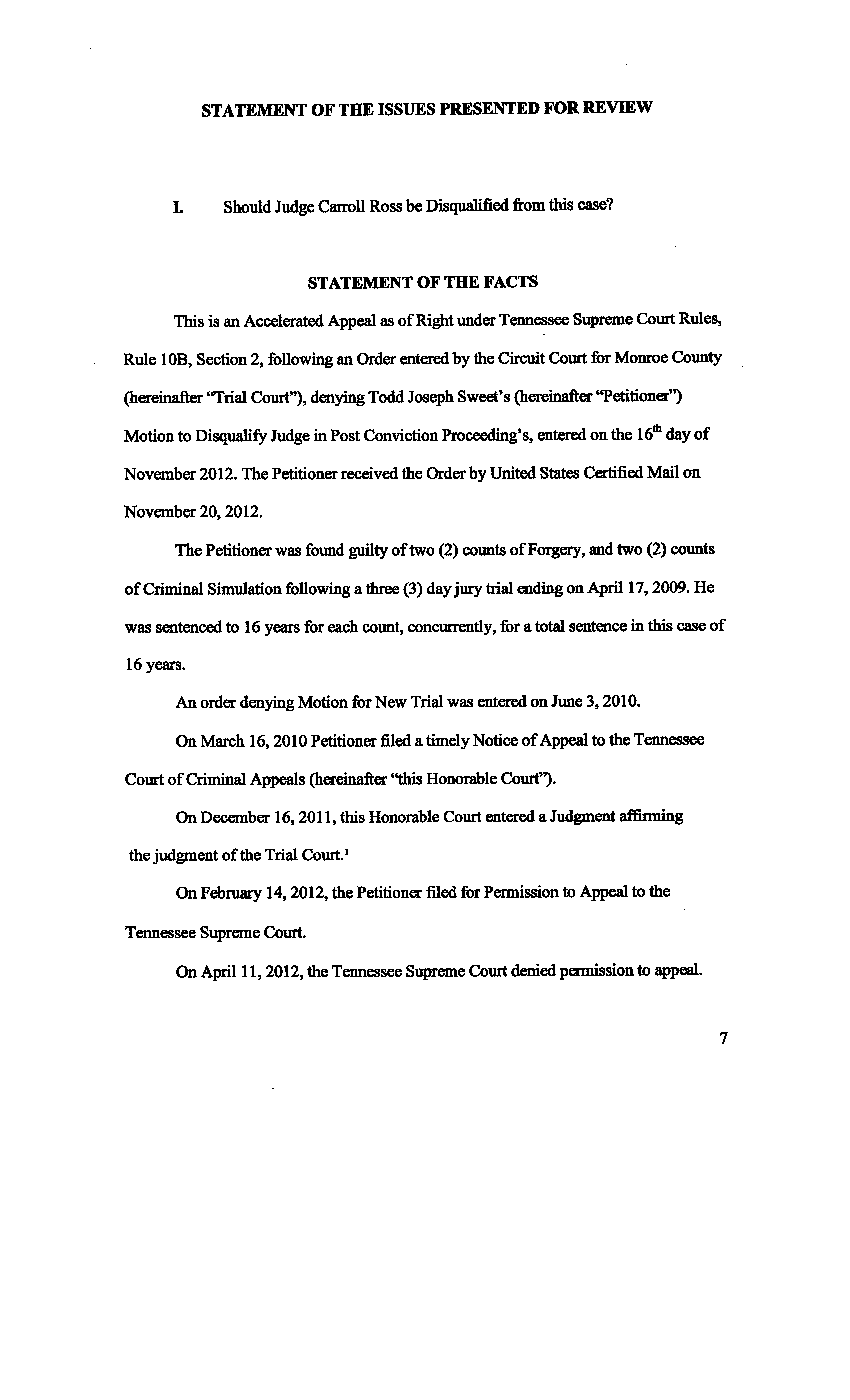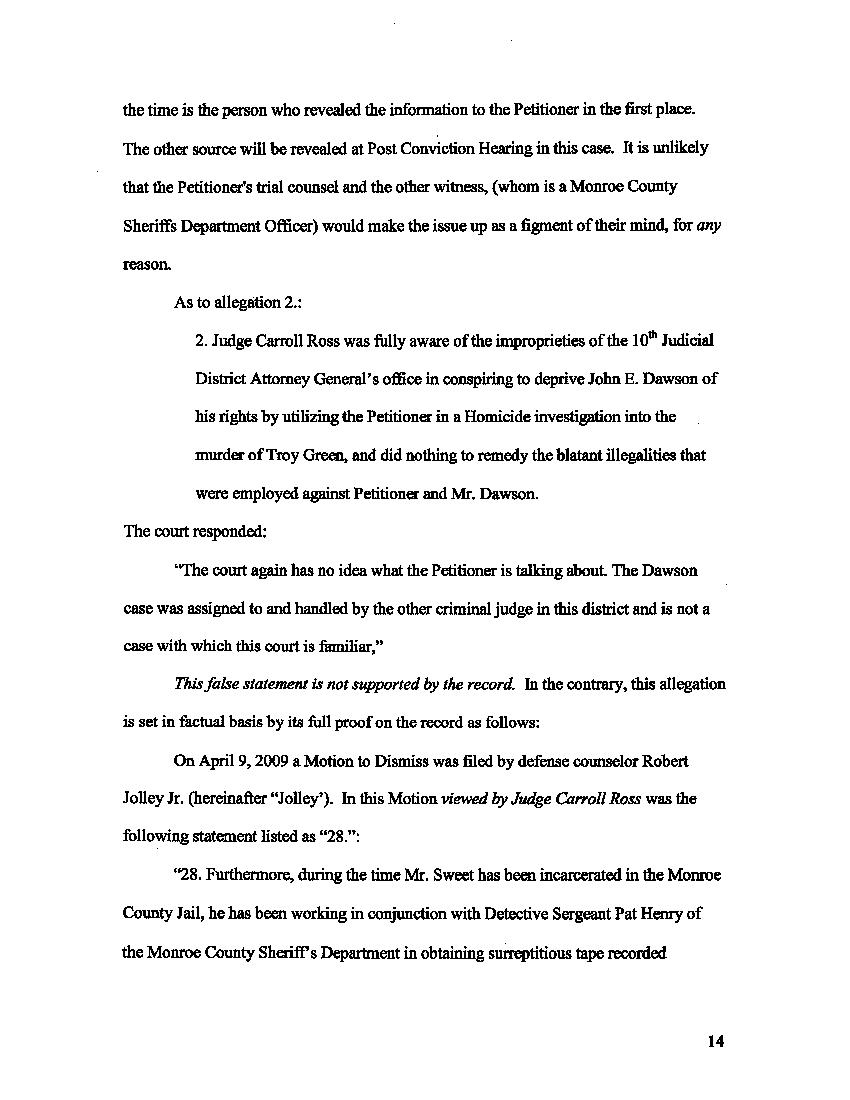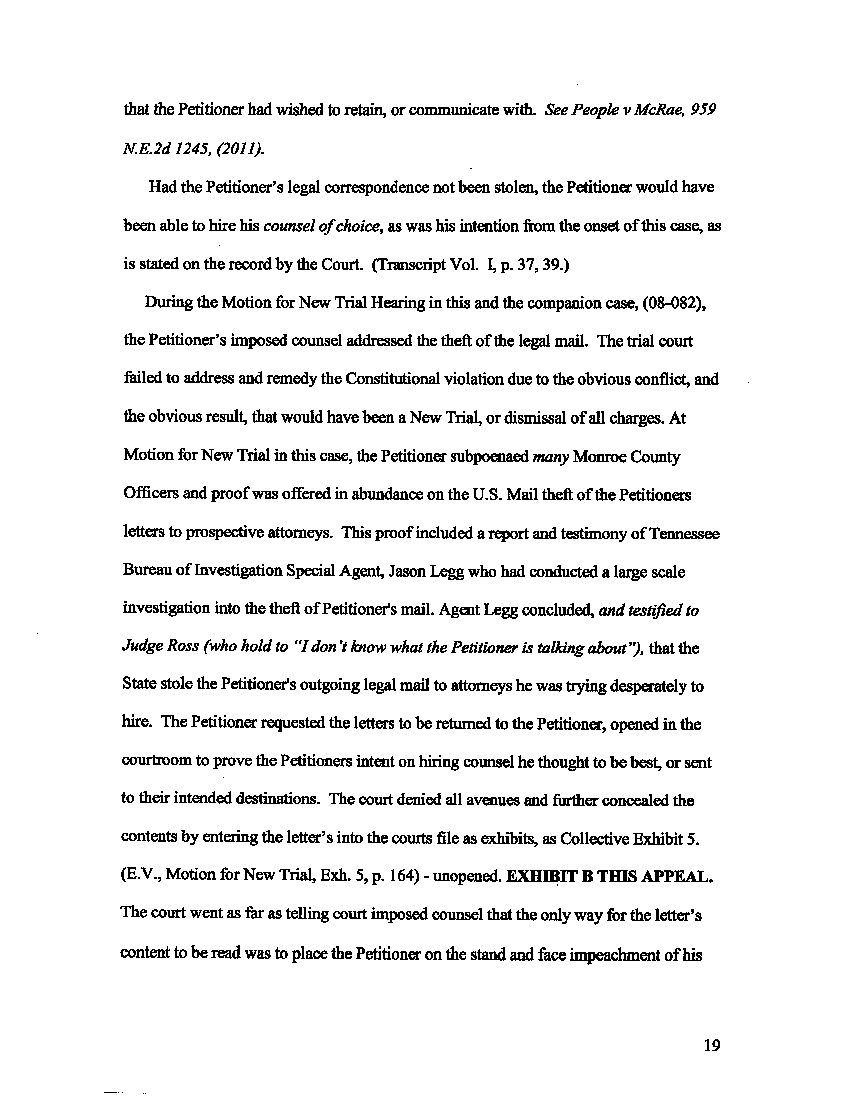AN INSIDER’S VIEW OF MONROE COUNTY JUDICIAL CORRUPTION
by Todd Joseph Sweet, ©2012

(Dec. 15, 2012) — [Editor’s Note: The Post & Email has been following the story of Todd J. Sweet, who has been serving a 16-year sentence in a Tennessee state prison but in June submitted a post-conviction petition with evidence not available at the time of his trial in April 2009. Sweet had sent us parts 1 and 2 of the petition, in which he exposed judicial corruption in Monroe County, TN, specifically identifying court clerk Martha M. Cook, District Attorney General Steve Bebb and Assistant District Attorneys General Paul D. Rush and James Stutts as “wrong doers” during his trial.
Bebb, Rush and Stutts are employed as prosecutors in the Tenth Judicial District, which was reported to be under investigation in late August. No update has been provided by the Tennessee Attorney General, Tennessee Bureau of Investigation or the state Comptroller’s office, although both the Comptroller and Attorney General’s offices stated that they could not comment on whether or not an investigation is actually taking place.
Sweet names Judge Carroll Lee Ross as a criminal, as has Walter Francis Fitzpatrick, III in his dealings with the Monroe County judiciary. Fitzpatrick discovered last May that a set of statutes passed in 1984 by the legislature had ordered the criminal courts to form districts to empanel grand juries to examine evidence of crimes, but the laws were ignored throughout Tennessee’s courts. Fitzpatrick has also proved that grand juries, which decide whether or not to issue indictments, and trial juries, which issue verdicts, often comprise individuals not eligible to serve based on TCA 22-2-314, which requires a two-year lapse of time between service on a jury anywhere in Tennessee.
In part 1, Sweet contended that Ross has a conflict of interest in presiding over his post-conviction hearing scheduled for February, although Ross continued to make decisions on the case.
Sweet stated in part 2 that no investigation of alleged malfeasance in the Tenth Judicial District is taking place as announced by the attorney general in August. He claimed that Ross had been “hand-picking” people to act as Sweet’s defense counsel, the most recent of whom, Atty. Steve Ward, filed a Motion to Withdraw because of a conflict of interest. Sweet is a Christian and believes that those working in the judicial system in Tennessee can choose to “spread the word of God” in doing their jobs properly. “God is the Boss, not Ross,” he said.
On November 16, 2012, Judge Ross refused to recuse himself from Sweet’s case but issued an “Order Holding all other Matters in Abeyance,” which appears as the last page of this writing.]



